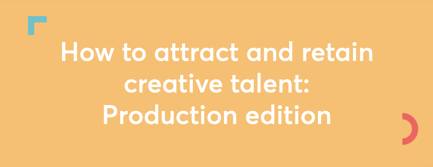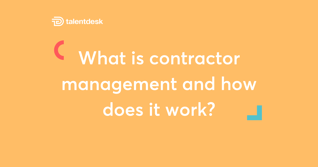- 4 Mar 2020
- 4 mins read
- Posted in
When someone mentions a contract, what is the first thing that comes to mind? If you just thought of a stuffy document full of legal jargon, you’re not alone — contracts are still largely perceived as long, complex paperwork that only lawyers can decipher. Moreover, there are a lot of negative associations attached to the word. You may think of contracts as something that you have to ‘enforce’ when things are going wrong. If these notions are enough to put you off from having to work out a contract, hold that thought. As this article will tell you, contracts need not be either complicated or confrontational. In fact, they may be the one thing that makes your freelancer engagement that much smoother.
Is a Freelance Contract Really Necessary?
First, let’s talk about whether you really need a freelance contract. What if the freelancer is someone you already trust or if the client is an acquaintance you’ve known for years? The short answer is yes, having a good freelance contract is always recommended, no matter how well you know the other party.
A contract doesn’t just settle disputes — it also helps define the scope of the agreement. While a verbal agreement is open to interpretation, a formal contract leaves no room for misunderstandings. If you are a freelancer, a contract can protect your rights. Since HR teams in most companies do not handle freelancers’ concerns, having a written agreement can help ensure that you are not asked to work outside the scope and that you get paid on time. Likewise, if you are an organisation working with a freelancer, a formal contract can help protect your intellectual property and give you a higher degree of control over confidential data.
Types of agreements
Now that we have established the importance of a written contract, let us look at the kinds of agreements that organisations and freelancers commonly enter into.
-
Formal contract: This is by far the most airtight agreement you can have. It addresses every aspect of the engagement, and sets out expectations for the entire duration of the contract. A lawyer may be consulted to draw up a formal contract.
-
Informal contract (Letter of agreement): This is usually drafted as a letter or an email and is not as legally binding as a formal contract. This is more of an informal understanding that outlines the scope of work, payment terms and obligations that are mutually agreed upon by both parties.
-
Statement of work: This agreement mainly just defines the scope of work — namely, what needs to be done, by when, and for how much money. This is much more informal than the first two options.
-
Non-disclosure agreement (NDA): This protects an organisation from having any confidential data or sensitive information leaked by freelancers. This may be particularly important in cases where a freelancer works with multiple companies within the same field or industry.
How to write an unbeatable freelance contract: The 7 essentials
1. Crucial basic information: The first things that any good freelance contract will outline are the basic details of both parties. This includes the names of the individuals and organisations, the address of their office premises and the main purpose of the contract. This establishes accountability on both sides. Another important detail this section will outline is the work status — it will classify the freelancer as an independent provider rather than an employee or a partner.
2. Scope of work: This section will go deeper into the details of the work. For instance, it should outline what the freelancer’s responsibilities will be, what volume of work they will be expected to deliver, the frequency of submissions, and so on. Likewise, it should also highlight what is to be expected from the client — what kind of briefs, raw data and feedback will be provided to enable the freelancer to do the job well.
It is best to make sure that this section also touches upon scope creep. Both parties should agree on what falls within the scope of the project — anything extra will need to be billed separately. One common oversight is when freelancers forget to specify the number of iterations they are willing to provide. Endless rounds of feedback and revisions can end up increasing the volume of work to a great extent, without any increase in compensation.
3. Timelines: Based on the scope of work, a detailed breakdown of timelines can be agreed upon. The contract should set out an initial briefing date, and then go on to calculate the timelines for the submission of the first draft, and the subsequent rounds of feedback and revisions. A final end date for the project should be mentioned too. Of course, how these timelines are planned will differ from project to project. But the idea is to be as detailed as possible, so as to leave no room for confusion.
4. Fees and expenses: This will highlight the compensation and expenses the freelancer is entitled to. This section should contain details about the payment terms — how the freelancer will bill the project, how invoices will be handled, and the number of days the client will take to process the invoice. If you are working with freelancers based in different countries, the payment method will also have to be agreed upon. Sometimes, with big projects, a freelancer may want to break down the payment schedule into several milestones rather than wait for one final payment. In such cases, once a verbal agreement has been reached, the final terms and conditions should be mentioned in the contract.
5. Intellectual property and confidentiality: This section defines who will own the intellectual property rights, once the project is completed. Typically you, as the client, will retain all rights to the final product or output that the freelancer works on. However, the freelancer may continue to enjoy certain privileges too. For instance, they may be able to name you as a client on their website, or showcase the work done for you on their portfolio. If this breaches your company’s privacy policy, you may want to discuss this with your freelancer and have a confidentiality clause put in.
6. Dispute resolution and liability: This will define the protocol to be followed in case there is a potential dispute. It will also indicate the laws and jurisdiction the agreement will fall under. Though it may seem like a minor technicality, this is very important if you are working with freelancers based in different countries, who may be governed by different laws. This section may also put forward any damages or liabilities that a freelancer may need to cover. As a freelancer, you may want to ensure that the damages you are liable for are proportional to what you are being paid for the project.
7. Termination clause: Usually, a freelance contract will allow either party to terminate the agreement if they so choose. However, they may be required to offer a few days’ notice or pay a certain amount as financial compensation. These guidelines and protocols will be clearly defined in the contract, so that no one party is left high and dry, should the other wish to discontinue the engagement.
Ideally, every freelancer engagement will grow into a fruitful professional relationship that lasts for years. A great freelance contract can help you eliminate any initial teething issues, and can get you well on your way to establishing such a relationship. Hopefully this blog and the 7 essentials will help you create the perfect freelance contract.

Melita Merceron
Speak to us to find out how we can help you pay your contractors more efficiently
Related articles

What is a 1099 employee?
Failure to classify your workers correctly can impact finances, employee morale and your business’ reputation. Learn all you need about 1099 employees here

Why Hire a Freelance Social Media Manager
Managing social media accounts can be a significant drain on time. Read the benefits of hiring a social media manager and how this may be the solution.
Scalable Workforce Solutions for Digital Marketing Agencies
Scalable Workforce Solutions for Digital Marketing Agencies
For marketing agencies, levels of work can vary significantly. How do you scale your team to meet client needs while avoiding overcapacity at other times?

How to attract and retain creative talent globally
How to attract and retain creative talent globally

How to Determine a Contractor vs Employee
Use our comparison chart and checklist to test whether your workers are Contractor vs Employee. Classifying workers correctly is a legal requirement.
Employer of Record (EOR) Guide - Benefits & Risks
What is an employer of record (EOR)?
Using an employer of record is beneficial when using external employees. Learn how it can protect your company with our Employer of Record (EOR) Guide.
Why AI Can't Replace Freelancers and Take Over Jobs
Why AI Can't Replace Freelancers and Take Over Jobs
Artificial intelligence tools like Chat GPT have people thinking their jobs are over, but AI can't replace human creativity & originality of a copywriter.
Contractor Onboarding Checklist
Contractor Onboarding Checklist
Learn how to onboard seamlessly into your team with our handy independent contractor onboarding checklist, with consideration to processes & best practices
How to Seamlessly Transition From Recruitment to Onboarding
How to Seamlessly Transition From Recruitment to Onboarding
Learn how recruitment and onboarding processes can be managed more effectively with HR software now.
IR35: Everything Contractors & Businesses Need to Know
IR35: Everything Contractors and Businesses Need to Know
Why is IR35 so important to contractors? What does it stand for? Who will get impacted by it? What are the responsibilities? Find out more in this article
